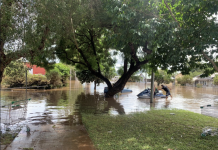
Over the last couple of years, mental health has thankfully gained significant traction in the media as a legitimate and profoundly damaging struggle for many individuals and their families.
The World Health Organization defines Mental Health as “…a state of well-being in which the individual realizes his or her own abilities, to cope with the normal stresses of life, can work productively and fruitfully, and is able to make a contribution to his or her family”1
Last year, Mission Australia, in a study of more than 14,000 Australian teenagers (15-19 years) found “Just over one fifth (21.2%) of young people who responded to the Youth Survey met criteria for a probable serious mental illness…” and alarmingly “…Over 60% of young people with a probable serious mental illness were not comfortable seeking information, advice or support from professional services such as telephone hotlines, online counseling and/or community agencies.”2
How devastating. Not simply the sheer number of adolescents affected by issues related to mental health (including, but not limited to depression, anxiety and stress), but also their friends and families impacted by the implications.
But what are these issues based on?
While each individual and situation is different, “Negative early life experiences such as abuse or loss of a loved one, social circumstances like family, school or work and biological factors are thought to cause the onset of mental health issues. Stress and the use of recreational drugs such as cannabis can also contribute.”3
Furthermore, previous research conducted by Mission Australia, “…has identified school stress and final examinations as key issues of concern for young people. Indeed, more than 40% of Year 12 students report symptoms of depression, anxiety and stress that fall outside normal ranges, with extreme cases linked to suicide. Additional concerns held by young people include body image, family conflict, career choices, and plans for the future.”4
Sadly, our churches are not immune.
Earlier this year, our Baptist Association hosted a two-day Mental Health Frist Aid training course with Joe Alberts (BA, BA Hons [Psych], MA [Clin.Psych], MAPS) who lectures at Morling College. Around 20 pastors and leaders from a variety of different contexts participated in the course and were unanimous in their praise of the content.
“The aims of mental health first aid, are to:
- Preserve life where a person may be at risk of harm
- Provide help to prevent the mental health problem from becoming more serious
- Promote recovery of good mental health
- Provide comfort to a person with a mental health problem.”5
I wonder what your interactions are with those suffering with mental health concerns? At home? At work? In your local community?
How equipped are you to be able to respond? With such a high percentage of people suffering with some form of metal health you will, at some stage, have to know how to deal with the effects of this condition. Increasingly this is something the everyday person (you) will face.
Over the next two years, we will be conducting a dozen training courses around NSW and ACT to equip pastors and people in churches to respond in a more holistic manner to issues surrounding mental health.
In the mean time, more information on mental health can be found online. Here are a couple of websites that can we useful in familiarising yourself with a basic overview of mental health, as well as understanding the specifics of particular issues:
- www.beyondblue.org.au
- www.blackdoginstitute.org.au
- www.health.gov.au/mentalhealth
- www.missionaustralia.com.au
May we, as followers of Jesus – the one who has promised us life the way God intends – respond proactively to those struggling with mental health concerns with compassion, direction and hope.
1. Kitchener, et al, Mental Health First Aid Manual, 4 2. Youth Mental Health Report, June 2014, Mission Australia, 3 3. Mission Australia, Mental Health: The Facts, https://www.missionaustralia.com.au/what-we-do-to-help-new/young-people/health-and-education/mental-health 4. Youth Mental Health Report, June 2014, Mission Australia, 5 5. Kitchener, et al, Mental Health First Aid Manual, 11


































